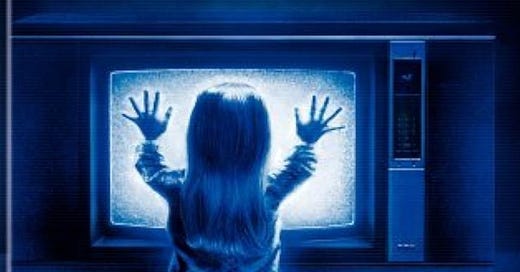Too often I wind up watching—and grudgingly finishing—a streaming series that’s, well, just-okay. You know, maybe a 5 or 6 (or—gasp—even a 4!) on the 10-point scale.
No need to name any of these mediocrity-exuding series. (Sirens.) I’m sure you’ve suffered the same lame viewer experience. The staleness. The routine performances. The slow grind toward an inevitable ending.
Ugh.
How does this never-ending-search-for-content calamity happen? For me, it’s either because something good I’m watching has finished up or I’m waiting a damn week for the next episode to “drop.”
(Dear Streaming Services: just release the entire season and let us binge-watch like civilized people!!!)
As a result, I subscribe to too many Streaming Services in a futile attempt always to have something of decent quality (i.e., in the 7-10 range) to watch. And, yes, I’ve already pulled the old “Free Trial” ploy too many times.
In sum, other than our climate and our democracy crashing about our ears while that dolt in the White House fiddles, I can think of no greater tragedy currently befalling postmodern humanity.
In the spirit of Public Service, then, (and you are welcome) I’ve decided to DO SOMETHING about this Content Crisis! Below I offer some highly subjective recommendations for good streaming series to watch. I’ll leave out most of the big ones: Stranger Things; Breaking Bad; Squid Game; Succession; The White Lotus; The Handmaid’s Tale; Ted Lasso, Welcome to Wrexham. All good stuff very much worth the watch. What I will name are mostly recent series (although some are older) that I particularly enjoyed for various reasons.
However, the one trait all of these shows have in common, for me, is that none of them bored me by being predictable.
They constructed storylines and developed characters for me to think about and to enjoy. Not the reverse. In other words, I did not anticipate what was going to happen or know automatically how each character was going to behave. None of these shows are mere formula.
One last thing. The recommendations below are not critical reviews, contain no spoilers, and are not ranked in any kind of order. All I do is characterize why I found each show something I honestly looked forward to seeing, episode by episode.
COMEDY SERIES
I’ll start with one of the best TV shows I’ve ever seen. I like shows that make you keep up. And Shrinking is certainly one of those shows.
The basic set-up revolves around three therapists (hence the “shrinking”) working in their Cognitive Behavioral Therapy Center. The humor is wry and nuanced—as are the characters. The situations are tangible—the stuff of personal drama, and sometimes trauma. This isn’t a drab sitcom.
Shrinking shows us smart people negotiating life, with the light side and the dark side coming in fairly equal amounts. Some of the same folks who made Ted Lasso make this series, so that might clue you in for what to expect. In my opinion, expect great stuff.
Best of all is Harrison Ford. Good lord. Who knew that Hann Solo and Indiana Jones was a genius comedic actor?
Talk about shows that make you keep up, buckle your seat belt for this one. More wit is liable to come your way in 30 seconds than most comedies manage in two or three episodes.
We follow two women trying to break into the Man Dominated world of showbiz during the 1950s. One is a newly divorced, speed-talking Jewish gal living in Manhattan who is hell-bent on making it as a stand-up comedian. The other is her struggling manager who is hell-bent on getting her there. To say the least, this show is never humdrum. Lots happening. Lots of well-developed characters. Lots of significant situations being explored.
And lots and lots of excellent snark flying around.
Also, if you happen to be old enough (I’m looking at you, my fellow Boomers) to remember the 1950s/1960s showbiz scene, The Marvelous Mrs. Maisel plays brilliantly off of that time period. Lenny Bruce is an actual character on the show, and there’s a fictionalized stand-in for The Tonight Show Starring Johnny Carson.
If you don’t know who those guys are, well, it’ll be worth your while finding out.
Oh, yeah. The cherry on top of this delicious comedy sundae is that it has, hands-down, the best series finale episode of all time. Yeah. That’s right. I’m talking all time here.
This show and The Marvelous Mrs. Maisel have much in common. Hacks likewise follows the fortunes of two women navigating the man-heavy realm of showbiz comedy. This show also harkens back to earlier decades of stand-up comedy as well as the big business of late-night talk shows. Whereas The Marvelous Mrs. Maisel is based in 1950s Manhattan, though, Hacks centers itself in contemporary Hollywood and Las Vegas.
Thus, its comic bite is directed at our own social and entertainment here-and-now.
The premise of the show is a young, inexperienced comedy writer comes to work for an aging-out stand-up comedian. The mission is to revitalize the career of this former star by reinventing her comic schtick.
Professional, personal, and generational conflict arises.
There’s good drama to be had in their gal-pal back-and-forth. They are at odds. They work together. Issues of young people trying to make their way in the world are explored. Issues of old people trying not to be irrelevant in the world are explored. Ever the beast is The Industry—still a hostile Manscape to be battled.
The best thing about Hacks, though, is that it’s just funny. Good writing. Good punchlines. Lots of nice zingers. Jean Smart (playing the aging star) and Hannah Einbinder (playing the young writer) bounce off of one another really well.
This show delivers smart and relaxing—two virtues, sadly, that seem in short supply these days.
This show is simply A HOOT.
Maybe the best way to characterize it is as a kind of present-day Screwball Comedy. Like those 20th-century Hollywood classics—e.g. It Happened One Night (1934), Bringing Up Baby (1938), or The Philadelphia Story (1940)—The Studio traffics in rapid-fire repartee, chaotic situations leading to ridiculous predicaments, wholesale topsy-turvy panic overtaking absolutely every character involved, and thus a kind of slapstick crisis absurdity driving most episodes.
In short: A HOOT.
At the same time, though, satire is happening. For one thing, corporate male dominance and alpha masculinity is constantly challenged and undercut by the show. The men running The Studio are bozos—bungling, egotistic, insecure. For another thing, as you would then expect, female characters lean toward strong and independent—albeit also delightfully eccentric. These are feisty women making their own way in spite of all the masculine stupidity popping around them. No damsels in distress in sight.
The primary target of the satire, however, is the Movie and Entertainment Industry itself.
The Studio is a show made by Industry insiders looking to mock and to debunk their Industry. The banality of the crap movies cynically fed to sheep-like audiences. The pretension of film stars and movie moguls who imagine themselves elite artistes and movers-and-shakers essential to society. The greed and the vanity and the stark nonsense of the whole Hollywood thing.
Let’s say, then, this series is an instructive HOOT.
DRAMA SERIES
This show is often labeled as a Comedy, but it’s not. It’s not even a Dramady. It’s a Drama series.
And a flat-out, really damn good one.
As I write this post, I just finished watching the final couple of episodes of the series last night. For me, over its four seasons, The Bear never once lost its way or its punch. It just got better at doing what it does: exploring the troubles of an extended Italian family in Chicago.
The site of this dysfunctional family dynamic is the restaurant business. More specifically, a run-of-the-mill neighborhood family restaurant trying to transition into an elite, Michelin Star restaurant run by a world-class chef. Thus, the foodie crowd will be well-served by this show. A whole lot of The Bear revolves around this rarified world of gourmet cookery and what it takes to be a high-end restaurateur. And it’s all fascinating.
But what makes this show special is the acting and the directing and the production value. Top to bottom, the main cast is flawless. Add to that some truly big-name actors playing secondary roles. Add to that some truly big-name actors playing quite minor roles, even small cameos. Then, best of all, these actors are given the time to act. The actors are allowed to let develop a scene, a key encounter, even little moments to themselves.
The story is not rushed, but never is it slow.
Now add inventive shots and skilled editing and an especially effective use of music. Like a virtuoso chef cooking a fine meal—to engage in an obvious comparison—the people making this show put into it a lot of thought, planning, expertise, and attention to detail.
And the storyline ends in a way you cannot expect. To say more would be to spoil it for you.
This is a quiet show.
Nothing is going to happen in it that we’ve been trained by our Video Overlords to expect. No car chases. No black-ops choppers overhead. No one suddenly hit by a car when innocently crossing the street.
No drama other than life.
This show also has a documentary-like feel to it. And an amateurishness that, at first, might be off-putting. Fight your way past these things. Let the quiet wash over you. You will relax into this show. And, if you do, you will enjoy and appreciate all of these atypical qualities.
Somebody Somewhere is also a family drama. A sister dies. Another sister moves back home to Manhattan, Kansas—a town and a farm life she’d fled—to help her family deal with the loss. Nothing comes easy for anyone.
But the show is funny and odd and entertaining and calming while, at the same time, delivering its fair share of touching interactions.
Enjoy the non-adrenaline rush.
This show is all about the adrenaline rush.
Police work. Organized crime. Intrigue. Victimhood. Murder. Mayhem. All connected, somehow, to the chilly climes of Minnesota. But Fargo is no routine police thriller. Very far from it. This series has the full quirk and charm of the Coen brothers’ 1996 film, Fargo, where the macabre meets Minnesota-nice.
Each of the five seasons of this series is a stand-alone tale. At the same time, each season contains hints and elements—sometimes obvious and important, sometimes incidental—of the other seasons. So even though every season has a different cast and a unique plotline, there’s a recognizable consistency to the series.
Every season has a true-crime feel to it. Every season features top-notch actors, often playing roles you might not expect them to be playing. Every season fashions a batch of full and interesting characters to watch collide. Every season has plot twists that are truly surprising.
Finally—and this is cool—every season incorporates some kind of element of the supernatural. A supernatural component that goes completely unexplained. It’s just there.
Yeah, weird.
Final note on this series: the last scene of the last episode of Season 5 is the best final scene of anything I’ve ever seen.
HAPPY VIEWING!!!
COMING IN TWO WEEKS: Part 2 of Recommendations for Streaming Series...
AND DON’T FORGET...
Read some provocative fiction. Check out and subscribe to my other Substack newsletter, 2084 Quartet at:
While you’re at it, read some provocative social commentary. Check out and subscribe to this absolute Substack gem as well:








Love these recs!